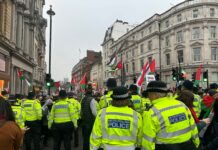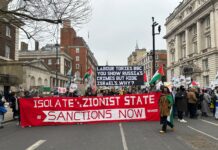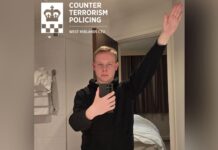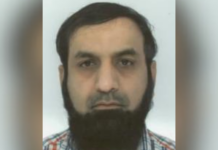Asian people are 11 times more likely than white people to be stopped at British airports and ports, and questioned under counter-terrorism powers.
Concerns have been raised by the Equality and Human Rights Commission (EHRC).
A new investigational pattern of analysis of the ethnicity of the 50,000 people a year who are stopped to establish if they are involved in terrorism indicates that racial stereotyping rather than genuine intelligence may be a key factor in the use (or abuse) of the powers under Schedule 7 of the Terrorism Act 2000.
Examinations under Schedule 7 can include basic questioning, a search and seizure of property and detention for up to nine hours.
Findings
The EHRC experimental breakdown demonstrates that there were high levels of examinations of passengers of certain ethnic backgrounds compared to white Caucasian passengers.
The figures show that among the 53,992 people stopped at all British ports and airports in 2012-13, those who were Asian were 11.3 times more likely to be stopped than those who were white. Those who were black were 6.3 times more likely to be stopped and those who were mixed race were 3.6 times more likely to be stopped.
Subscribe to our newsletter and stay updated on the latest news and updates from around the Muslim world!
The EHRC briefing paper published last Thursday stated that when a more in-depth analysis was done of the 2010-11 Schedule 7 stops on the basis of nine separate ethnic categories, including Indian, Pakistani, Bangladeshi and Chinese, those with a Pakistani background were shown to have a highly disproportionate number of stops.
Pakistani people were 52 times more likely to be stopped than white people, 135 times more likely to be questioned and examined for more than an hour, and 154 times more likely to be detained.
CEO of EHRC, Mark Hammond said Schedule 7 was a “necessary and useful power in the provision of national security”.
He said: “If used intelligently and proportionately the police can protect the public against terrorist threats. However, stopping people based on stereotypes could lead to time and resources being misdirected and have a negative impact on relations with black and ethnic minority groups.”
Hammond, who said the study implied there might be an inequality in the use of Schedule 7 against ethnic minorities, added: “We are also concerned by the fact that people can be detained for lengthy periods without the reasonable suspicion required for other stop-and-search powers.”
The equality commission says it will use the findings to work with the Home Office and the police to ensure they are following their own rules, which prohibit discrimination on ethnic grounds in the application of these powers.
The code of practice for UK Border Force (UKBA) officers and police special branch says they must ensure “that the selection of persons for examination is not solely based on their perceived ethnic background”.
Amendments
The analysis has been published as the House of Lords discusses changes to the Schedule 7 powers as part of government amendments to the crime and antisocial behaviour bill.
The home secretary, Theresa May, is proposing to decrease the maximum period of detention from nine hours to six, to introduce new rights for the person detained to consult a solicitor and a ban on intimate searches, among other changes.
David Anderson QC who is the government’s official counter-terror watchdog, has also suggested that the power to detain people under Schedule 7 without any suspicion of wrongdoing should be dropped completely.
EHRC has also backed amendments that would require “reasonable suspicion” to examine anybody for longer than one hour.






















